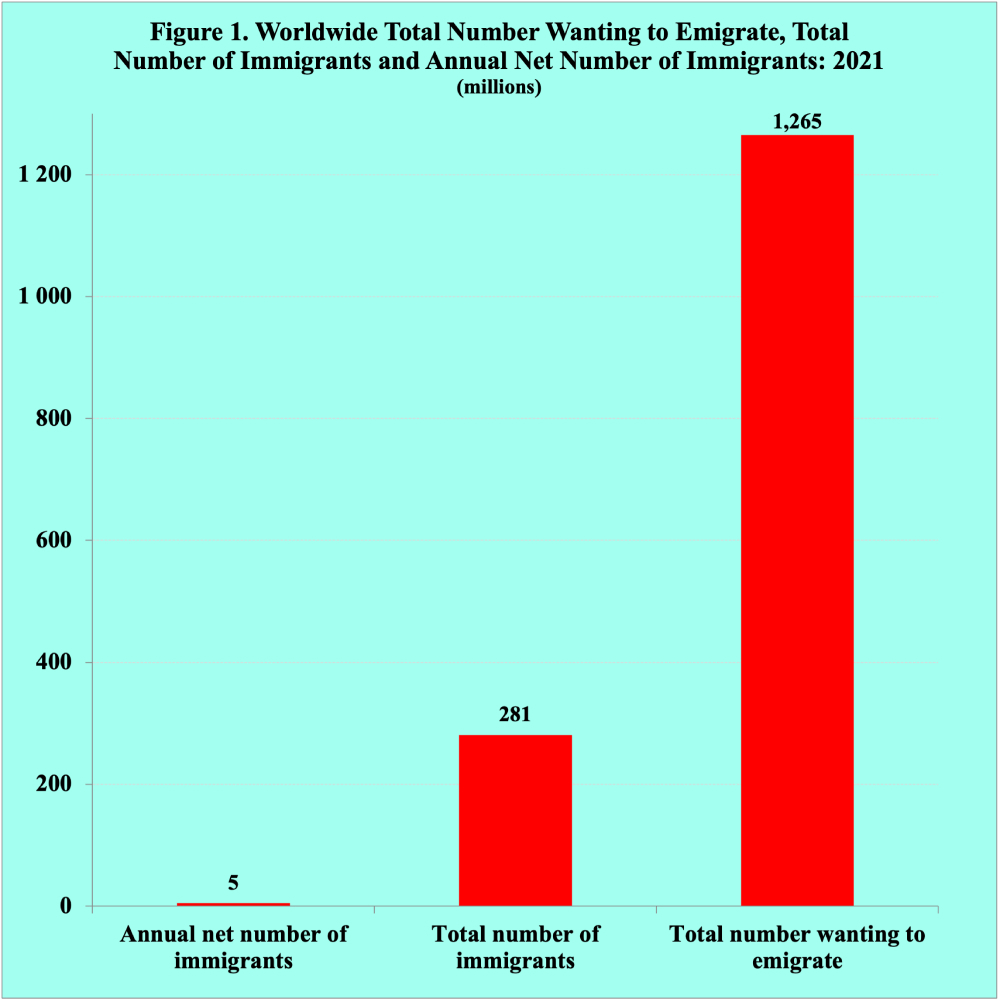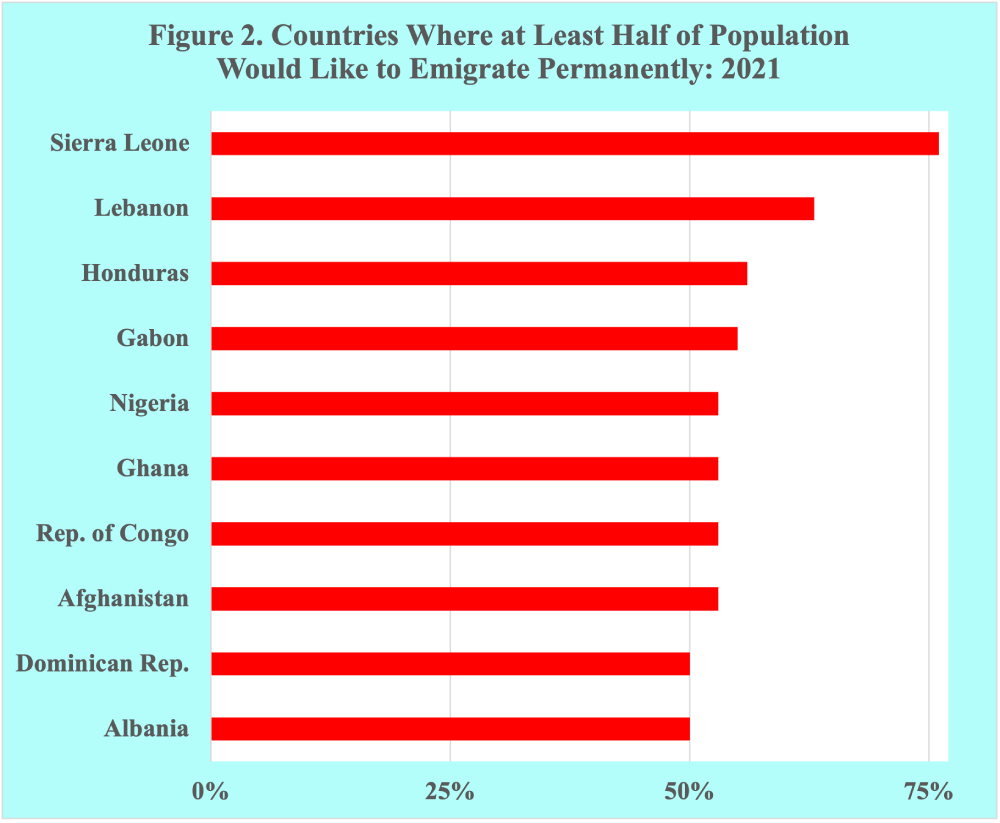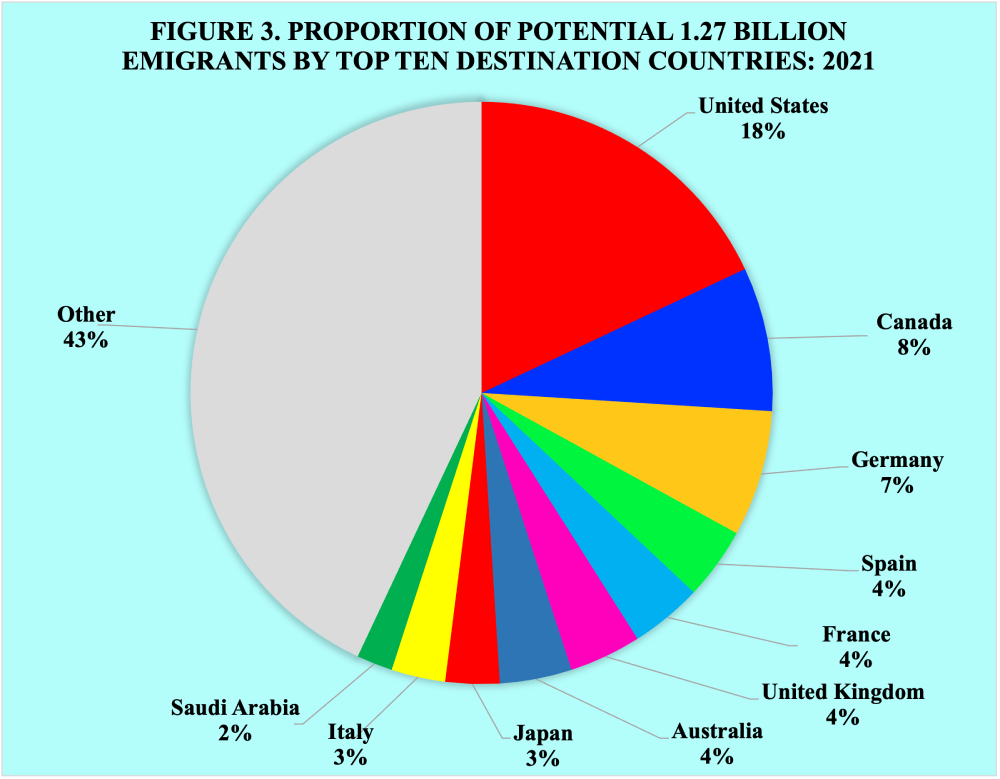Millions of men, women and children who want to leave their home countries permanently but are not able to do so legally are resorting to illegal immigration with many upon arrival claiming asylum.
According to Article 13 of the Universal Declaration of Human Rights, everyone has a basic human right to leave any country and return to their country. However, one does not have a basic human right to migrate to another country.
Many of those wanting to migrate to another country are doing so largely due to poverty, unemployment, absence of basic services, political instability, violence and environmental problems. Those grounds, however, are not sufficient grounds to justify legal entry into another country.
Consequently, growing numbers of people living in difficult circumstances and lacking legal authorization to migrate, typically to a wealthy developed country, are turning to illegal migration. When apprehended crossing international borders and arriving on foreign shores, many migrants lacking legal authorization to be admitted are increasingly claiming the right to asylum.
According to Article 14 of the Universal Declaration of Human Rights states, one has the right to seek and to enjoy in other countries asylum from persecution. Asylum is granted to persons who can demonstrate that they are unable or unwilling to return to their country because of persecution or a well-founded fear of persecution on account of race, religion, nationality, political opinion or membership in a particular group.
Furthermore, the 1951 Convention Relating to the Status of Refugees and its 1967 Protocol relating to the Status of Refugees codified the right of asylum. Again, the right to asylum is for anyone having “a well-founded fear of being persecuted for reasons of race, religion, nationality, membership of a particular social group or political opinion.”
The Convention and its Protocol, however, did not require governments to grant asylum to those who qualified.
By claiming asylum, migrants lacking legal authorization to enter are in principle permitted to remain in the destination country while their asylum claims are being adjudicated. Typically, the adjudication process takes no less than several years and the large majority of asylum claims are denied.
In the United States, for example, approximately 70 percent of the claims have been denied over the past several years. Similarly high levels of asylum claim denials, often exceeding 70 percent in first-instance asylum applications, are reported among many European countries, including France, Hungary, Italy, Poland and Sweden.
Surveys report that in 2021 approximately 16 percent of the world’s population, amounting to 1.27 billion people, would emigrate to another country permanently if they could, figure 1.
 Source: United Nations Population Division and Gallup
Source: United Nations Population Division and Gallup
That number of potential emigrants is many times larger than the current number of immigrants worldwide, which is approximately 281 million. Also, the estimated annual number of people becoming immigrants, approximately 5 million, is a fraction of the total global number of immigrants.
Furthermore, half or more of the adult population in 13 countries would like to emigrate permanently to another country. Among those countries are Afghanistan, Gabon, Ghana, Honduras, Lebanon, Nigeria and Sierra Leone, figure 2.
The top ten destination countries account for close to 60 percent of the potential 1.27 billion emigrants. The top destination country with 18 percent of the potential migrants selecting it is the United States. In second and third places are Canada and Germany with 8 and 7 percent of the potential number of emigrants, respectively. They are followed by Spain, France and the United Kingdom at 4 percent, figure 3.
In addition to those wanting to emigrate, large numbers of men, women and children have recently emigrated from their homes. Central America and the Caribbean countries, including Haiti, Cuba, Guatemala, Honduras, Nicaragua and Venezuela, have experienced considerable emigration over the past decade. For example, between 2015 and 2020 the share of Venezuelans living outside Venezuela jumped from 2.5 percent to 19 percent.
In addition to the millions attempting illegal migration, the world is seeing record levels of refugees, asylum seekers and persons displaced across borders. According to UNHCR, more than 100 million people were forcibly displaced or made stateless in 2022 and those numbers show no sign of slowing. Furthermore, since the start of the 21st century, the number of refugees and asylum seekers has increased greatly, reaching nearly 33 million and five million, respectively, in 2022.
Without legal authorization to emigrate, growing numbers of men and women and increasingly even unaccompanied minors are deciding to resort to illegal migration. Also, many of the migrants are willing to risk their personal safety and lives to reach their desired destinations.
Since 2014, worldwide more than 50,000 migrants are known to have died during their illegal migration journeys. Also, no less than 853 migrants died trying to reach the United States from Mexico during the past twelve months, which makes the fiscal year 2022 the deadliest year for migrants recorded by the U.S. government.
It is evident to even the casual observer that the world is experiencing an illegal immigration struggle.
On one side are millions of people wanting out of their poor and often violence-ridden countries with many of them deciding to migrate illegally.
Modern transportation, high-tech personal communications, up-to-date information and widely available illegal immigration services from smugglers, people traffickers and others are facilitating the illegal migration of men, women, and children. And upon arrival at their desired destinations, many of the unauthorized migrants are exercising their right to claim asylum.
On the other side of the struggle are millions in the comparatively wealthy and stable destination countries attempting to stop those illegal immigrants from entering their territories.
Governments of both developed and developing countries are choosing to close their borders to people fleeing poverty, human rights abuse, violence, failing states and most recently climate change. Moreover, despite the internationally recognized right for people to cross borders to seek asylum, governments are increasingly preventing, discouraging and complicating attempts of men, women and children to enter their countries and claim asylum.
To date, national, regional and international attempts to resolve the illegal immigration struggle have not made any significant progress. Consequently, a resolution to the illegal immigration struggle with increasing numbers of migrants claiming asylum remains unlikely any time soon.

















